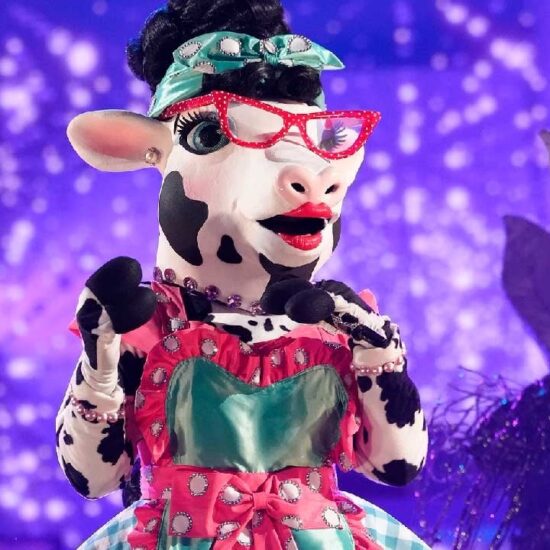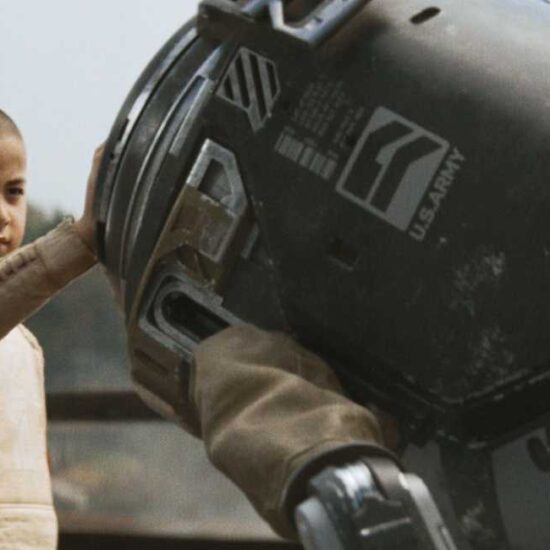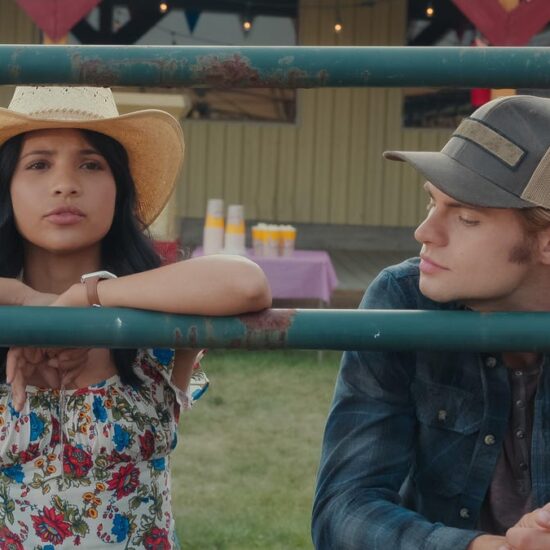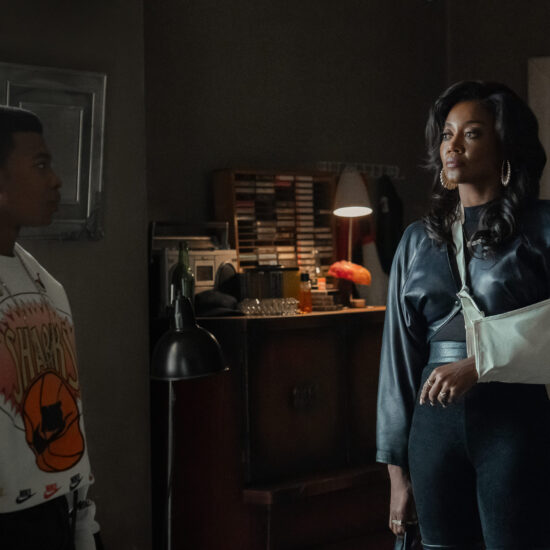
“The Resort” opens with the beachy beat of David Byrne and Brian Eno’s “Strange Overtones,” — strange indeed, as the song plays under an epigraph with something slightly wrong.
Two quotes wipe across the screen. First: “The pursuit to capture your past is a waste of time. The past lives in the past and is therefore non-existent in the present. Time travel has not been invented.” These words are credited to Illán Iberra’s 1978 book “El Espejo,” or “The Mirror” in English. Next, a retrraction: in 1993’s “La Desilución del Tiempo” (“The Disappointment of Time”), Iberra writes, “I made many idiotic and pretentious statements in my youth.”
Episode 1 of the Peacock adventure comedy is titled “The Disappointment of Time,” and at first, it seems that creator/showrunner Andy Siara (“Palm Springs”) is hoping to position the ideas of “The Resort” in conversation with Iberra’s work. But Iberra doesn’t exist.
“I’m glad that you researched this character,” Siara laughs. “That’s what I was hoping people would do, only to be ultimately disappointed. Which is kind of the thing about the show — everything’s just a little disappointing, and life goes on.”
Careful not to spoil anything, Siara notes that Iberra is based partially on his own readings of the Argentinian writer Jorge Luis Borges, and that Iberra’s name will become important in future episodes of “The Resort.”
The series stars Cristin Milioti and William Jackson Harper as Emma and Noah, who travel to the Yucatan peninsula for the tenth anniversary of their struggling marriage, where they begin to unravel evidence about the mysterious disappearance of teenagers Sam (Skyler Gisondo) and Violet (Nina Bloomgarden) 15 years earlier. The messy love-and-adventure stories unfold in parallel timelines, both marked by the peculiarities of the Oceana Vista resort and the mysterious Frías family.
“There’s two different translations ‘La Desilución del Tiempo,’” Siara says. “One is ‘The Disappointment of Time,’ and the other is ‘The Disillusionment of Time,’ which is probably more proper, which is why the finale is called ‘The Disillusionment of Time.’”
Part of Siara’s decision to frame the series around these translations came from the nature of his writing process. He started on an early version of “The Resort” eight years ago, writing and rewriting as time went on, eventually noticing how the drastic changes he’d made to the plot mirrored drastic changes in his own life — especially becoming a father.
At one point, the scripts included a running question that Siara later chose to focus on more subtly: What is the disappointment of time?
“I know I would have answered that question differently when I was 25 versus now. That can range from the very practical, literal answer — our aging, rotting bodies — or our fading memories, or just that there’s not enough time.”
The stress Siara feels about missing moments of his young children’s lives while working in television and film informs the tension Noah and Emma face in their relationship, which they handle with incompatible coping mechanisms. Emma refuses to think or talk about their problems, instead throwing herself into the mystery of Sam and Violet, while Noah makes feeble attempts at confrontation and boundary-setting but still reluctantly follows Emma wherever she goes.
And while the division between his home and work lives cause anxiety, some of the most creative ideas in “The Resort” were borne of Siara’s time at home. For example, the flips between Noah and Emma’s timeline in the present and Sam and Violet’s in the past are enabled by Emma’s discovery of Sam’s Nokia flip phone. As she scans through his texts and pictures, we seamlessly transition 15 years into the past.
“I was moving, and cleaning the garage, when I found my old Nokia,” Siara says. “I did the exact thing that Cristin’s character does: the phone didn’t work, but I found another phone in that same box and that did work, so I swapped out the SIM card and looked at what was on it. I saw, like, 400 photos that I took when my old band was on tour in 2009.”
Without realizing it, Siara spent hours looking through the phone. And after noticing how much time had passed during this “nostalgia spiral,” as he calls it, he reflected on the special feeling of unearthing memories he’d lost while also noting that too much time spent thinking about the past takes away some of the power of the present.
“Right around that same time, my first daughter was born, and we were taking different shifts in the middle of the night to feed her,” Siara continues. “I was bouncing on a yoga ball at like 3 a.m. just brainstorming, half-awake, and it was then that I decided to split up the timelines and introduce this phone.”
In Siara’s original idea for the series, Sam lived in the present and befriended Noah and Emma as they tried to reconnect to their youth, but separating their timelines allowed for a deeper exploration of place and genre. As Emma and Noah investigate Sam and Violet’s disappearance, they keep finding clues that point them towards the Fríases, a family of wealthy tailors with a yellow snake as their logo. There’s a sinister energy in the air about them, especially surrounding the black sheep Baltasar, until a flashback shows Baltasar working at the resort and quietly offering Violet’s father Murray (Nick Offerman) a complimentary bottle of Mezcal and a place to sit alone as he mourns on the anniversary of his wife’s death, before joining other staffers at a Christmas party.
“I think we all come up with ideas of what a show about a murder in Mexico should be like, and I really wanted to pull the rug out from under you,” Siara says. “We’ve been trained by what we watch on TV: ‘Oh, this must be some kind of crime family!’ When we never actually say it’s a crime family.”
After deciding to set “The Resort” in the Yucatan, it became important to Siara to subvert stereotypical expectations: “No guns on this show, and no cartels. I credit a couple of our writers, Manuel Alcalá and Mara Vargas Jackson, who talked a lot about how every time you have Mexican characters, they’re [expected to be criminals].” In Episode 4, which drops next week, Siara says there will be a “major left turn” that recontextualizes the Frias family’s role in Sam and Violet’s disappearance.
“So in this act of humanity, giving this Mezcal to Nick Offerman’s character and then going to the dance, these characters that you thought were the villains of the story might not be the bad guys at all. Or maybe they are!” he says. “But if they are … they seem like a lot of fun!”













